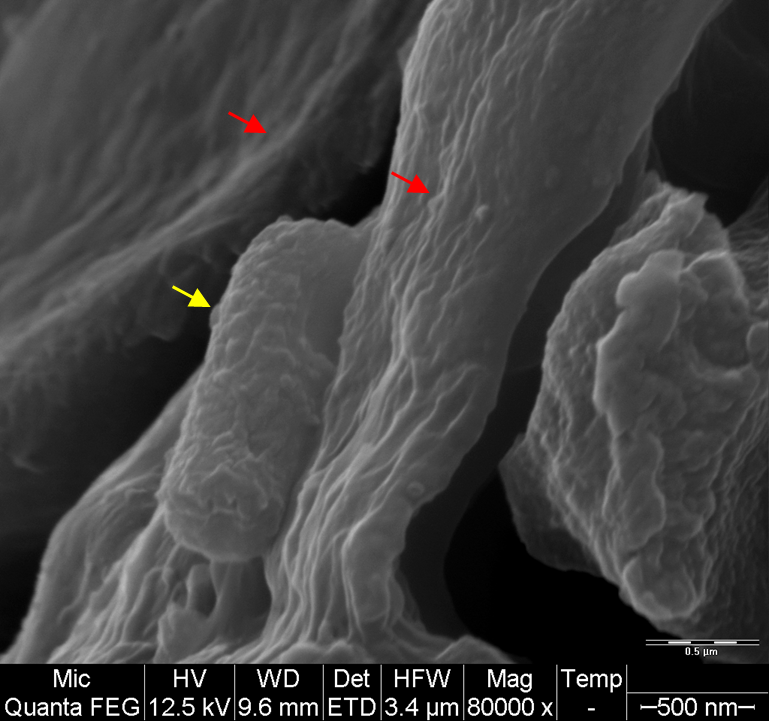Bacillus anthracis, the etiological cause of Anthrax, is a spore-forming gram positive bacteria. Our group has mastered multiple clinical and laboratory microbiology techniques, from classical isolation and plating and selective growth in complicated media, to light microscopy, confocal and scanning (SEM) or transmission electron microscopy (TEM). The lab uses a variety of biochemical and molecular biology techniques to study bacterial pathogenicity and host microbe interactions as well as to develop genetic tools to explore the epidemiologic development of the disease.
Timely and efficient antibiotic treatment is essential for full recovery. One of the group's top priorities is the evaluation and validation of recommended therapeutics (recommended by the Center for Disease Control, the CDC) and the development of novel antibiotic and non-antibiotic treatments. In addition, we utilize genetic and proteomic methods to screen for new bacterial proteins as potential therapeutic targets for small molecules or specific antibodies, possibly improving current treatment protocols, with the goal of being effective in cases of antibiotic resistance. The main purpose of our efforts is to provide the best possible Anthrax treatment to the citizens of Israel.

Scanning Electron Microscopy of a B. anthracis cell in the rabbit lung that succumbed to infection. The bacteria is marked with a yellow arrow and lung epithelial cell with red arrows